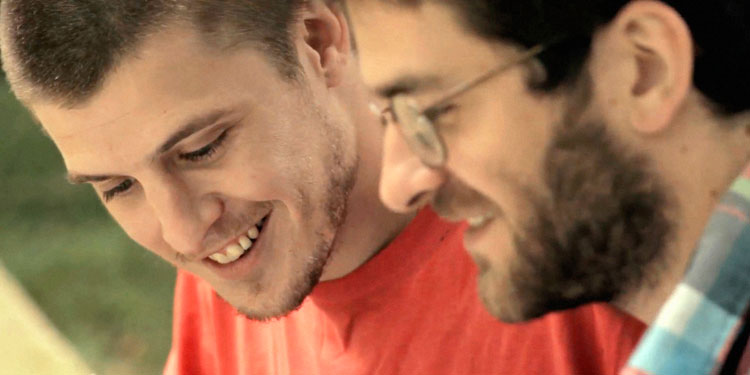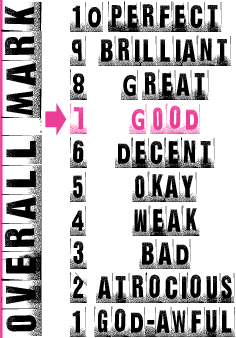
Director: Marco Berger
Running Time: 102 mins
Certificate: 15
Release Date: June 23rd 2014 (UK)

Marco Berger has made a bit of a name for himself in the indie queer cinema world with the likes of Plan B and the Berlin Golden Teddy Award winning Absent. He also directed half of the shorts that made up the collection Sexual Tension: Volatile. Each of those shorts featured two guys negotiating the edge of attraction as it perhaps built towards a sexual release.
In many respects Hawaii takes the idea behind that anthology and expands it into a feature-length movie.
Martin (Mateo Chiarino) is a young man who has fallen on hard times. While he’d hoped to stay with his aunt near his childhood home, he can’t and so ends up living rough. While going around looking for odd jobs he stumbles upon the home of Eugenio (Mateo Chiarino), who agrees to give him a few things to do. They also soon realise they were once friends when they were young children.
Over the course of the summer the men grow closer, especially after Eugenio discovers Martin is sleeping outside and so invites him to stay at his home. However, while Eugenio knows he is attracted to Martin, he is unsure whether the other man might feel the same way, and if Martin did reciprocate whether he would only be doing it because he feels in Eugenio’s debt.
Hawaii is a well-made and interesting movie with relatively little dialogue. Instead it relies on looks, movement and gesture as the men’s relationship builds. It’s a strategy that means it’s left up to the viewer to interpret what they’re seeing – is Eugenio’s interest in Martin based on genuinely wanting to help him, or is there a slightly creepy, almost exploitive side to what he’s doing? Is Martin interested in Eugenio sexually, and if he is, is it something he’s consciously aware of from the beginning?
However, the fact not a huge amount happens for long period of time mean that if you’re not prepared to engage with the film and its characters, you’ll probably find it long, slow and boring, with the only moments of interest being when the sexual tension between the men starts to rise to a fever pitch. If you do engage though, the film has a lot to offer. The interplay between the characters is intriguing – even if it is often silent – with the movie becoming almost as much about the power dynamic between the men and its possible imbalance as it is about the increasingly close relationship between them.
Hawaii is not perfect and there are definitely moments that feel unnecessary or a little indulgent, and it could have been cut by about 10 minute without losing too much, but nevertheless it works and is yet more evidence that Marco Berger is one of the most interesting directors working in gay-themed cinema today.
Overall Verdict: It may not be the fastest, most plot-filled movie out there, if you’re prepared to engage with the characters and what the tension growing between them means, it’s well worth watching.
Reviewer: Tim Isaac





Leave a Reply (if comment does not appear immediately, it may have been held for moderation)